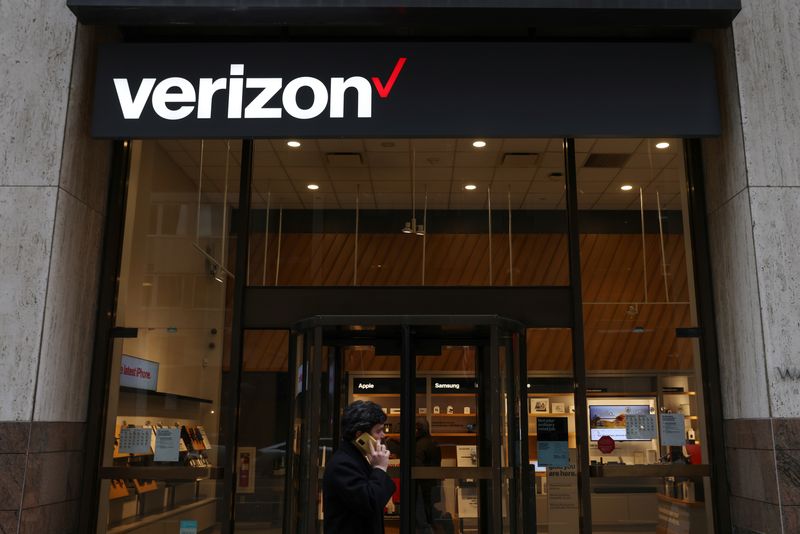By Eva Mathews and Savyata Mishra
(Reuters) -Verizon Communications Inc's profit fell 23% and it added fewer-than-expected wireless subscribers in the third quarter as its raised prices drove some customers to cheaper plans from fast-growing rivals AT&T Inc (NYSE:T) and T-Mobile US (NASDAQ:TMUS) Inc.
The largest U.S. wireless carrier said on Friday it lost 189,000 monthly bill-paying phone subscribers in its consumer business after it included additional charges in June, over and above its pricey plans.
Shares fell 6% to their lowest in over a decade as finance chief Matt Ellis said higher prices for plans led to disconnections and warned the pressure would continue into the next quarter.
Competition in the U.S. telecoms markets is heating up after Verizon (NYSE:VZ) and AT&T offloaded their media businesses and T-Mobile completed its merger with Sprint Corp to become wireless-focused companies.
While higher spending on 5G infrastructure has jacked up costs, the companies are forced to keep their plans affordable as rising inflation hammers consumer spending.
Verizon, whose plans are the most expensive, added 8,000 net new monthly bill paying wireless phone subscribers in the quarter, well below Factset estimates of 35,400 additions.
Some analysts feared competition is catching up, while many said its high price must been seen as its strength.
"The thing people forget is the biggest company in the industry, they have the most customers to lose each quarter," Michael Hodel, director of telecom and media research at Morningstar said.
Its net subscriber addition was powered by an increase in its business segment, which added 197,000 customers.
"Verizon's ability to maintain pricing power is a key strength as it navigates a fairly saturated wireless market," Jamie Lumley, Third Bridge analyst said.

While its third-quarter revenue and profit beat Refinitiv estimates, subcriber loss remains an overhang as analysts said iPhone upgrades in the holiday season are expected to be weaker.
Net income fell to $5 billion, prompting Verizon to announce a plan to reduce annual costs of between $2 billion and $3 billion by 2025.